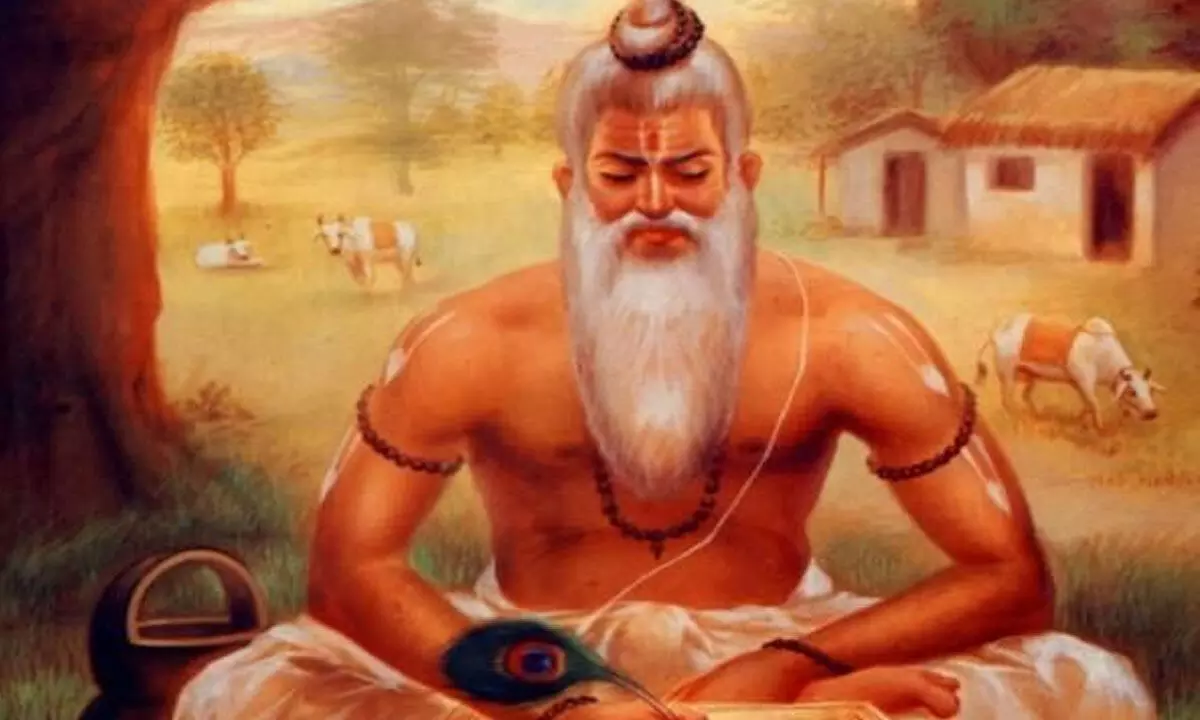Live
- They always want me to win, and now I feel lucky to have been offered a story like ‘Zebra’: Satyadev Kancharana
- ‘Democracy first, humanity first’: PM Modi in Guyana's parliament on two countries' similarities
- PKL Season 11: Telugu Titans register third straight win to top standings
- Is Pollution Contributing to Your COPD?
- NASA Unveils Underwater Robots for Exploring Jupiter's Moons
- Additional Central forces arrive in violence-hit Manipur
- AR Rahman and Saira Banu’s Divorce: Legal Insights into Common Issues in Bollywood Marriages
- 82.7 pc work completed in HPCL Rajasthan Refinery area: official
- Curfew relaxation extended in 5 Manipur districts on Friday
- Tab scam prompts Bengal govt to adopt caution over fund disbursement
Just In

Is secularism a foreign concept? Some think that it is a foreign concept which has been mischievously introduced into our constitution and hence oppose it.
Is secularism a foreign concept? Some think that it is a foreign concept which has been mischievously introduced into our constitution and hence oppose it. Others too think that it is a foreign concept, but they welcome it saying that it gives us the hitherto unknown liberal values of freedom and equality. Those who think that the values of liberalism, freedom and equality are alien are wrong in their understanding of tradition. Those who think that Manu smriti is our value system are equally unaware of our tradition.
By the time the word secularism was first used in 1852, the modern idea of state being neutral to religion had become established. But the idea originated in the context of separation of church from the state and the long fight for religious liberty of protestants in Christendom dominated by the Catholic church. It is a follow up of Martin Luther and his efforts to reject the political authority of the Pope over the Christian countries. The idea morphed and came to refer to a value system in which the state would not promote one religion against another. This idea slowly gained ground and Thomas Jefferson called it a wall of separation between the church and the state. Much later, in 1852, the word secularism was used by a British social commentator.
If we see the structure of our texts, we realize that secularism is not a foreign concept in the sense it is used now. It is the very spirit of the Upanishads which are our primary texts. The spirit of the primary texts is encapsulated in the Gita. Religious freedom is our core value. There is no room for dogmatism and intolerance. God could be worshipped in any name and form, as we saw in several earlier notes. Critics of tradition have to know that Manu smriti and such other smriti texts are not the primary texts of Hinduism. They were written by different sages at different points of time. The unchanging value system is from the Upanishads, and it is known as Sanatana dharma. Champions of tradition may also have to see that the ideas of liberty and equality are not new to our tradition.
Rousseau’s famous statement, ‘man is born free but everywhere he is bound by chains’, is almost a direct statement from the Upanishads which say that man has to transcend social identities and investigate his real nature. Writers like Voltaire and Rousseau were fully acquainted with Vedanta philosophy. It was the intellectual movement called the enlightenment of the eighteenth century. This phenomenon of enlightenment is only due to the west’s interaction with the eastern civilizations of India and China. Romantic poets like Blake, Wordsworth, Shelley, and thinkers such as Schopenhauer were acquainted with Indian concepts. Vedanta asks us to go beyond our social identity of race, religion, caste, social status and realize one’s real nature, which is not different from the Supreme Reality. It uses the term ati-varnashrami, referring to a person who has transcended the limitations of his varna (brahmin, kshatriya etc.,), ashrama (bachelor, householder, samnyasi etc.,) and sees every being as not different from his own self. This concept of seeing all beings with the same love with which he sees himself is repeatedly told in the Gita. It is called atmaupamyam, comparison with one’s own self.
Philosophical concepts guide our social behaviour. Millions of people lived the ideals of the Upanishads and treated all beings as their own self, loved them as they would love their own self. They accepted food from all sections of society. But there were also people who remained at the level of sociological texts such as the codes of Manu or Parasara and followed exclusivist practices. Let us not forget the continued racism in advanced societies.
Indian texts do not make the fundamental flaw of dividing humanity into two groups, believers to be loved and others to be destroyed. This flaw of the western cultures caused more bloodshed in history than all the exclusivist practices in the secondary texts. We have to proudly realise that our constitution champions the core ideals of the Upanishads from which the idea of equality has sprung.
(The writer is a former
DGP, Andhra Pradesh)

© 2024 Hyderabad Media House Limited/The Hans India. All rights reserved. Powered by hocalwire.com







